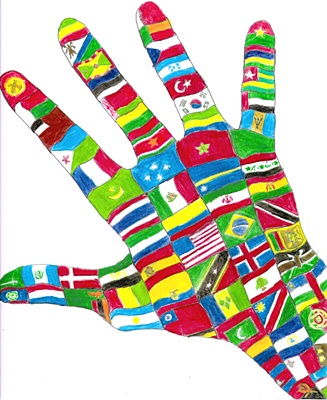All Nonfiction
- Bullying
- Books
- Academic
- Author Interviews
- Celebrity interviews
- College Articles
- College Essays
- Educator of the Year
- Heroes
- Interviews
- Memoir
- Personal Experience
- Sports
- Travel & Culture
All Opinions
- Bullying
- Current Events / Politics
- Discrimination
- Drugs / Alcohol / Smoking
- Entertainment / Celebrities
- Environment
- Love / Relationships
- Movies / Music / TV
- Pop Culture / Trends
- School / College
- Social Issues / Civics
- Spirituality / Religion
- Sports / Hobbies
All Hot Topics
- Bullying
- Community Service
- Environment
- Health
- Letters to the Editor
- Pride & Prejudice
- What Matters
- Back
Summer Guide
- Program Links
- Program Reviews
- Back
College Guide
- College Links
- College Reviews
- College Essays
- College Articles
- Back
What Are Values?
Values are abstract concepts that people choose to consider important; that is, they are valuable to us. They are idealizations of behaviors and characteristics that we would, in an ideal world, like to exhibit. Values are often associated with religion, and indeed religions do have moral codes and people can learn many values from any religion they practice. However, values are fundamentally human and common to all people and societies, even if what is valued differs. Values are one of the deepest parts of what it means to be human and are also of fundamental importance when it comes to a society functioning cohesively.
According to MindTools.com, “Your values are the things that you believe are important in the way you live and work. They (should) determine your priorities, and, deep down, they're probably the measures you use to tell if your life is turning out the way you want it to.” Put another way, values are the idealizations of behaviors we wish to exhibit. If we value honesty, that means we idealize being honest in all situations; in reality, we are probably not honest in all situations, but we attempt to be honest when we remember to do so and it is not overly inconvenient for us. Values are unrealistic idealizations that help to guide our decisions in the real world.
Values are often associated with religion. Values can be taught by religions; most belief systems include a moral code. Judeo-Christian morality includes the Ten Commandments, which give some basic guidelines on how to be a good person: don’t lie, don’t be envious, honor your father and mother, don’t kill anyone, and the like. This shows that Jews and Christians value—or, at least, profess to value—honesty, gratitude, respect, and human life. For Muslims, the Five Pillars of Islam outline a value code: faith, prayer, and charity are included, suggesting that Muslims value piety and generosity.
However, values don’t have to come from religion. Anyone can value family, hard work, success, happiness, generosity, or community. Having values in some form or another defines our humanity, or at least enables us to live in a social context. Societies since the beginning of recorded history, and likely earlier, have had moral codes outlining what is and is not acceptable to do, highlighting the values of these societies. Moreover, one could make the claim that people are happier when their actions and their values align. When values and actions do not align, people often feel tension and guilt, even if they’re not actually doing anything wrong. Values can serve as a uniting force for people—since practically everyone has them—if used and discussed correctly.
Values are idealized abstractions of traits and behaviors we wish to exhibit. They are important enough to us that we are often willing to risk giving up what we want in order to uphold our values. Values are often taught in a religious context, and are often associated with religion, but religious people do not hold a monopoly on values. Having values is a part of what it means to be human.

Similar Articles
JOIN THE DISCUSSION
This article has 0 comments.
